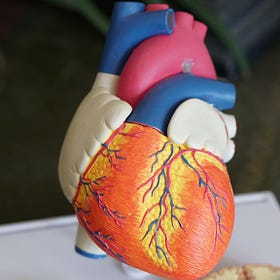The Link Between Inevitability And Rate Isn't Very Well Established.
And that's because there isn't a good mathematical correlation between them!
Previously, we looked at the concept of the Gibbs free energy (ΔG) in thermodynamic situations. The Gibbs energy of a chemical reaction describes the spontaneity of a reaction occurring at a specific temperature.
The Concept Of Reversibility in Chronic Diseases.
It’s always fun to play a game of Uno and hit a Reverse on someone. But of course, there exist worse cards such as the dreaded +4 card. What I want to look at today is the concept of reversibility — especially when people out there have burning questions about whether certain diseases can be
For instance, the formation of carbon dioxide from carbon and oxygen has a ΔG value of -394 kJ/mol of carbon dioxide.
The negative value of ΔG means that carbon will inevitably react with oxygen to form carbon dioxide.
But those of us who have done backyard barbecue sessions will realise that a bag of charcoal that we purchase from the supermarket will not spontaneously combust. It just remains as little bricks of carbon, and we do need other aids such as fire starters to get the charcoal burning.
However, when the flame is lit and the charcoal starts burning, it will be forming carbon dioxide at the end of the day - if there is sufficient oxygen supply to ensure a complete combustion.
If charcoal were to spontaneously combust at room temperature, it wouldn’t be a wise idea to place bags of them in supermarkets for sale, that is for sure.
Hence we do need to look at the idea of the reaction rate, also known as the reaction kinetics.
The kinetics of a reaction tells us how quickly a reaction proceeds. Some reactions occur at a rapid rate - for example, if we were to drop a piece of potassium metal into water, a rapid, spontaneous and violent reaction is observed to occur as the potassium metal turns into potassium hydroxide. (Potassium metal actually has to be stored in oil as a result of its propensity to react with water.)
What we do have to know is that the thermodynamics of a reaction will tell us how inevitable a reaction is, while the kinetics will tell us how quickly it proceeds.
Much like a terribly mismanaged organisation.
Those working on the inside will know that the organisation is bound to collapse one day (thermodynamics), but they don’t know when that day will arrive (kinetics).
In the same way, people with atherosclerosis will know that they are eventually going to get a heart attack (thermodynamics), but they don’t know when that day will arrive (kinetics).
Interestingly, the body does function like a biochemical reactor. What we’re doing throughout our lives is to feed in different inputs, ranging from sensory, mental, physical and chemical… and then the various cells in our body take those inputs and produce outputs from there, some desirable and some undesirable.
By providing different types of stimuli, we may accelerate or decelerate the rate of different biochemical reactions.
For example, professional athletes know the importance of consuming sufficient protein to maintain muscle mass for optimal performance in their sport. They’d need to work out specific muscles for enhancing muscle growth (output), and they’d have to be consuming sufficient protein in their diet (input) to ensure that they have the necessary foundational building blocks for building new muscle cells.
And on the flip side, additional stress (input) in our lives can be pro-inflammatory (output), which results in the production of more pro-inflammatory cytokines.
How Overdoing Stress In Life Can Bring About Dementia More Easily.
Stress is something that we don’t really like to have too much of. It is said about stress that: Stress is a feeling of emotional or physical tension. It can come from any event or thought that makes you feel frustrated, angry, or nervous. Stress is your body’s reaction to a challenge or demand. In short bursts, stress can be positive, such as when it helps you avoid danger or meet a deadline. But when stress lasts for a long time, it may harm your health.
These pro-inflammatory cytokines can signal the macrophages in our body to produce more matrix metalloproteinase (MMP) enzymes, which can digest away the collagen cap on the atherosclerotic plaque more quickly (here’s when the reaction rate increases).
Now, Seriously, What's So Tricky About Cholesterol?
This article is the final part of a 3 part miniseries. The first 2 parts can be found at: Medical science has been talking about cholesterol and its links to heart disease for years. People who are at risk of heart failure are invariably prescribed medicines such as
Hence we don’t want to give a person with heart disease unnecessary stress.
Because while the inevitability (thermodynamics) of a heart attack looms, the unnecessary stress will only accelerate the issue (kinetics) and force the patient into a worsened state of health.
But thermodynamics is not equal to kinetics, let’s remember that.
They are related to each other via some mathematical equations that I am loathe to discuss here.
However, the magnitude of the Gibbs free energy in a chemical reaction does not, in any way, reflect the speed that the reaction will proceed at. The reaction kinetics are a completely different ballgame from the reaction thermodynamics.
But at the end of the day, what is inevitable thermodynamically will most likely happen. We just don’t know how fast we will take to get there. They are ticking time bombs just waiting to go off - but when will they actually go off?
Do feel free to share this article and hit the “subscribe” button to get more updates about the economics and science concepts in nutrition and health, all deconstructed nicely for your convenient perusal!





